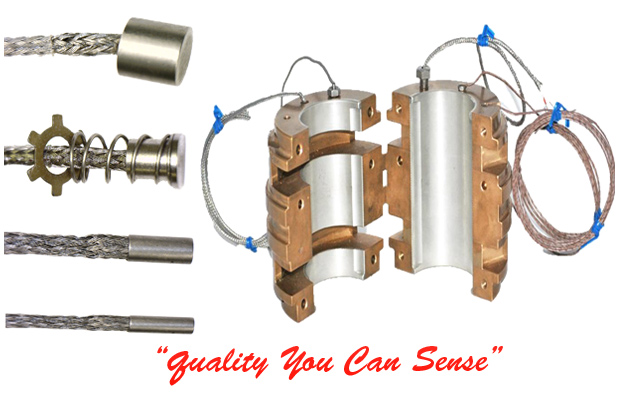Get an Expert with Your Temperature Sensor
Get an Expert with Your Sensor
July 22, 2008 By: G. Raymond Peacock, Temperatures.com Inc.
This is the eighth essay in a series expanding on an article I wrote for Sensors titled "A Twelve-Step Sensor Selection Checklist." In May, I talked about the process of soliciting bids. This month, I'll focus on acquiring a sensor, or measurement device, and expert technical services.
A Source of Expertise
Keep in mind, the sensor supplier is an expert in the sensing area in which you are involved and a valuable technical resource, regardless of your own level of experience. This is particularly true these days. Many companies have cut maintenance, R&D, and technical-support staffs, so in-house sensor specialists are often a rare commodity.
Cross training welders and electricians may increase the number of people in your company who can follow a wiring diagram, but it doesn't cultivate staff capable of evaluating technical needs and instrument specifications. Experts today often reside in the vendors' operations. You need to tap that expertise. A purchase order can provide access to that resource.
If you base your purchase decision solely on price, you may not get the expertise and technical support you need. You may miss the chance to expand your knowledge and shortchange your company over the long term. "Buying a vendor" really means establishing a mutual working relationship with someone you expect to be able to work with and who will support you in getting the best out of their products.
Why do you need support? Here are just a few reasons.
· When setting up and using sensors, you may need help determining if they are tuned properly for the process you are measuring and/or controlling. You may need information that you cannot find in the manuals. Expert help usually lies with the vendor.
· When integrating the sensor into your measurement or control system, how do you make initial and regular verifications? The vendor has done that more than once (if you picked correctly).
· Who provides operator and service training? A capable vendor has applications and training specialists who will help, often at surprisingly low cost.
· Will your vendor support repairs/replacements? One that cares about its customers always will.
· Who can help you with the next job that has similar requirements. A vendor that you already know and whose expertise you have tapped before to solve a problem.
Picking a Partner
You can use the vetting process of potential suppliers to evaluate their technical expertise. If their products are similar and support features equal, the rapport you develop with one or more vendors will help you decide whom you would work with best.
In addition, when you review sensor specifications submitted by each vendor, pay careful attention to exceptions they might include. Ask the vendors to review their bids and detail the reasons for exceptions. A competent vendor will not hesitate to point out relevant issues you may have missed. These points are usually spelled out in the supplier's exceptions to a bid specification. Be alert for the signals; the suppliers are usually the real experts.
You may also want to visit the vendor's key people to gauge the company's expertise first-hand and check key aspects of its manufacturing practices and product testing. This is a good way to get to know some of their key support and technical staff, which can prove invaluable in the long run.
Remember, you're not only buying a sensor or sensor system, you are establishing a relationship with an expert organization and its key people. Your vendor will help you and your organization get the most from its sensor. If you buy from a catalog or base your purchase decision solely on price, you'll miss the added benefits a sensor partner brings to your operations.
Will a Standard Device Be Sufficient?
Even if the project is small or the sensor you need may be considered a commodity, you still need to exercise care. It's easier to knowing when you can relax if you have the help of an expert.
For example, many people believe thermocouples are simple and require little care when being purchased. But knowing when that is the case depends on knowing and understanding if it is a "simple" product. If your requirement approaches the limits of a thermocouple's temperature or error range, you should be careful.
In one case I know of, an engineer needed to monitor the surface and subsurface temperature of a large slab of steel as it passed through a reheat furnace. Almost every thermocouple vendor told him there would be no problem using a Type K thermocouple in a mineral-insulated, stainless steel metal-sheathed (MIMS) form. All the data on insulation resistance, however, was given for ambient temperatures. Being careful, he tested several samples and discovered that the MIMS thermocouple lead-wire insulation became electrically conductive at temperatures above 1700°F. All the measurements above that temperature would have serious errors of undetermined sign and magnitude. One supplier recommended another insulation material and wider spacing of the thermocouple wires to solve the problem.
This example proves my point: Choose your partners carefully and take advantage of expertise where you find it.
|
